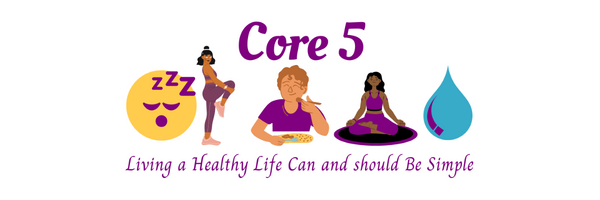Imagine a friend tells you they deprive themselves of water. How would that make you feel?
It’s insane, right! Why would anyone do that to themselves? Yet, sidestep over to another Core area, sleep, and we observe that the majority of people deprive themselves.
How the body reacts to lack of sleep
The human body is a survival machine. It tells us when we’re tired, angry, joyful, and helps us react appropriately. It is also sensitive to anything that may harm it. Our bodies see lack of sleep as an emergency.
When the emergency bells start ringing, our body kicks into gear – it wants to keep us alive at all costs! Physiologically, it’s like a movie where a military base is being attacked by aliens and everyone jolts into panicked action. Our blood pressure raises; we want immediate energy, so cravings for sugar and processed foods invade us to the point of becoming irresistible; heart rate rises to pump more blood to muscles; and while these short-term “getting ready for action” changes take over, longer term processes like digestion, immunity from pathogens, and our sexual systems are repressed.
If we deprive ourselves of sleep regularly, these changes will become chronic, leading to outcomes like heart disease, high blood pressure (hypertension), obesity, diabetes, and all causes of mortality. Keep in mind too that sleep may be the best possible form of stress management, so depriving ourselves of sleep also puts us at increased risk of consequences associated with stress.
On top of the physical consequences, sleep is also a time for our brain to clean itself up. Toxins build up during the day, and if we don’t clean them out regularly, we feel cloudy-minded and it gets harder to concentrate. For this reason, those who get more sleep tend to be more creative, more innovative, perform better at work, have stronger social relationships, and this leads to greater general life satisfaction.
I tell you this not to alarm, but because it’s the truth, even if we don’t want it to be. Humans are not invincible. Sleep deprivation is so common, but so incredibly harmful if you’re wanting to lead a healthy life. It’s also important to note that this likely isn’t your fault. Willpower is usually not to blame, it’s more of a societal health epidemic.
It’s almost certainly not your fault
In modern times, we live in a consumer capitalist environment. When we’re sleeping (or walking outside, meditating, or playing with our kids in the park for that matter), we’re not consuming. We’re not spending money. This is a problem for a consumer capitalist environment. Even the strongest willpower can’t stand up for long against this societal pressure. Can we as humans prioritize both our health and peace-of-mind as well as continue to lead a money-hungry society?
If you have a really hard time getting more sleep consistently, you are not alone. Personal circumstances also play a huge role and can make it harder for some than others. Remember that no step is too small to recognize and that it’s normal to get frustrated and exhausted, and maybe give up a few times, on the road to finding a strategy that actually works.
Sleeping pills – yay or nay?
While sleeping pills can have a place in the short-term, they should never be used as a long-term fix for poor sleep. When we induce sleep by drugging ourselves, our quality of rest suffers. Sleep is a very active process where our bodies do lots of things, like heal us and clean toxins from our brains. Introducing drugs during this time can cut down on the efficiency of these processes, can decrease our REM sleep (the deepest stage of sleep), and we may become dependent on the drug to get to any sleep at all. You’re also likely to be more groggy and less refreshed the next day. If you’re considering using sleeping pills, please always talk with your doctor first. Reading something on the internet is not the place for specific advice.
Conclusion
Getting more sleep is way easier said than done. A lot of people like to frame it as an experiment, as this takes away some of the paralyzing hesitation of feeling like we have to change forever. Try adding 15-30 minutes of sleep a night (check out an example), see how you feel, and go from there.

